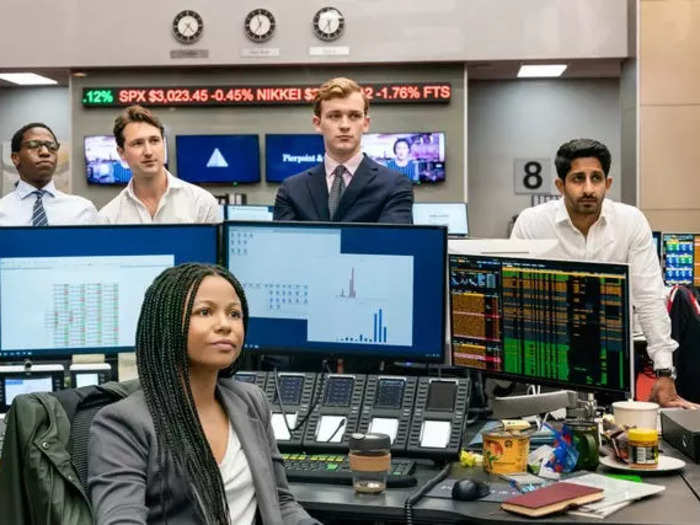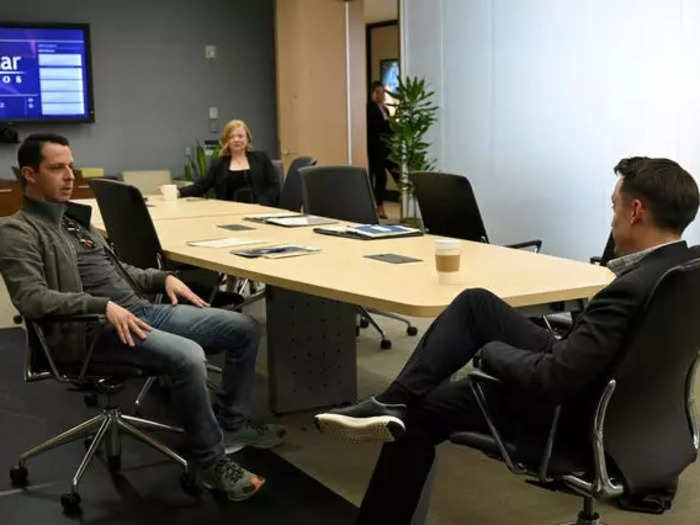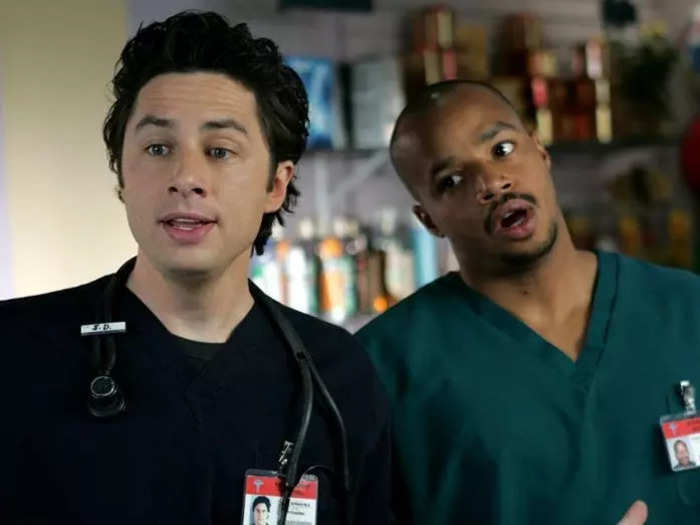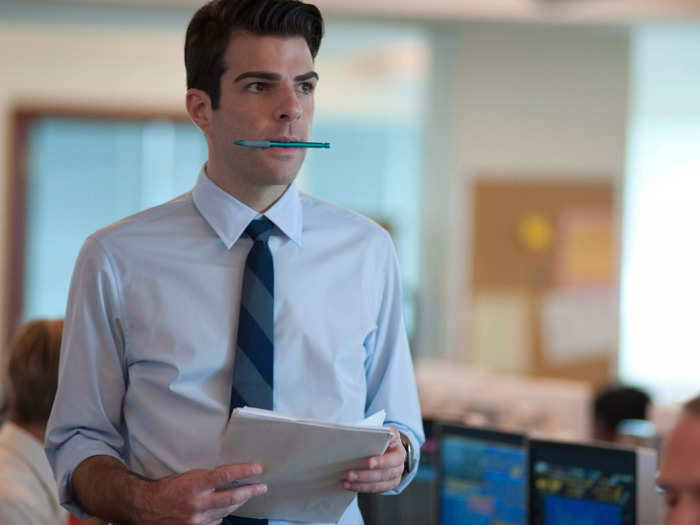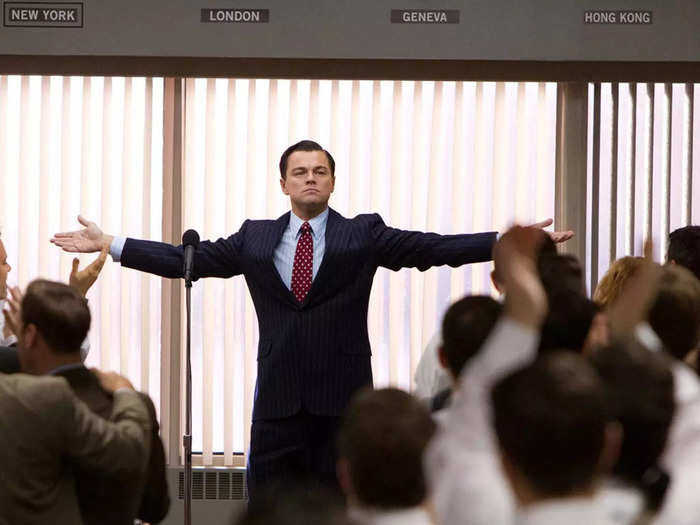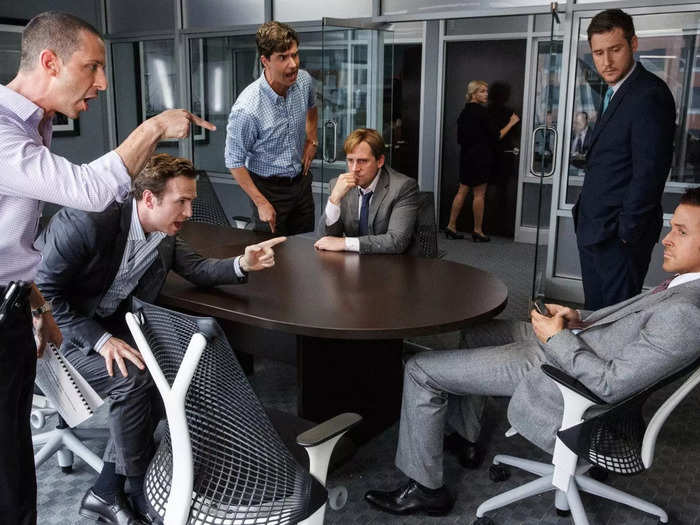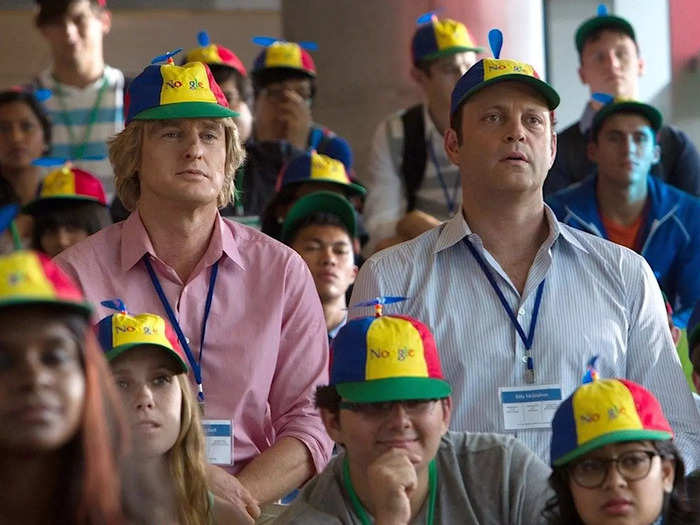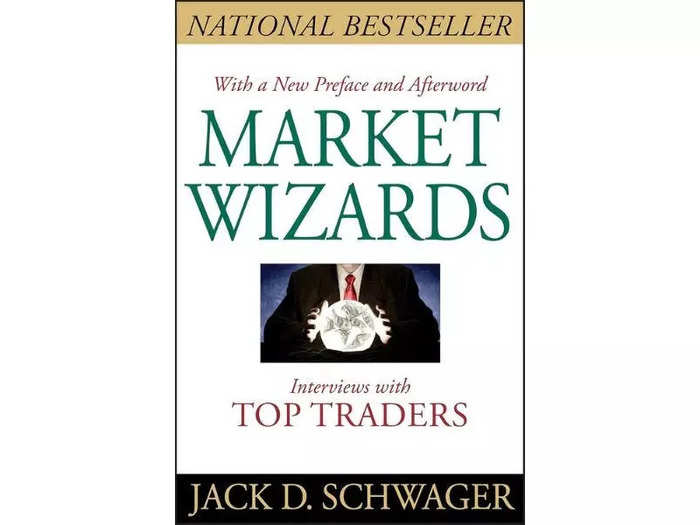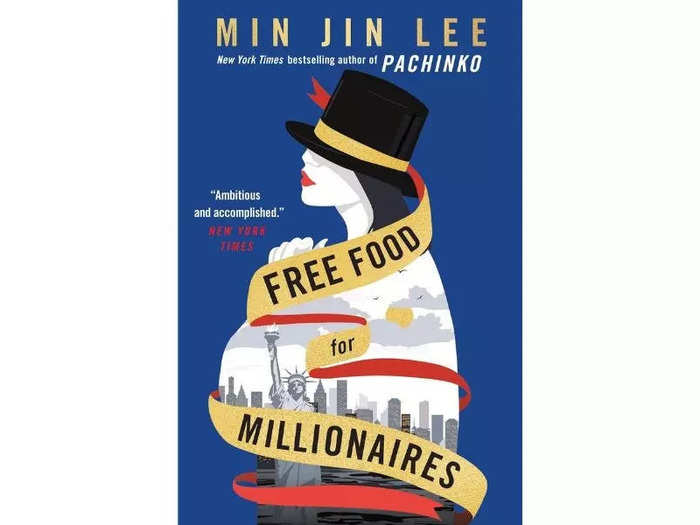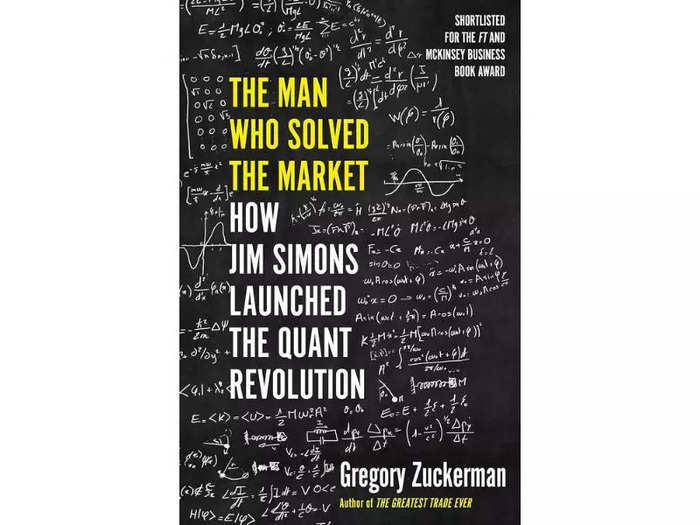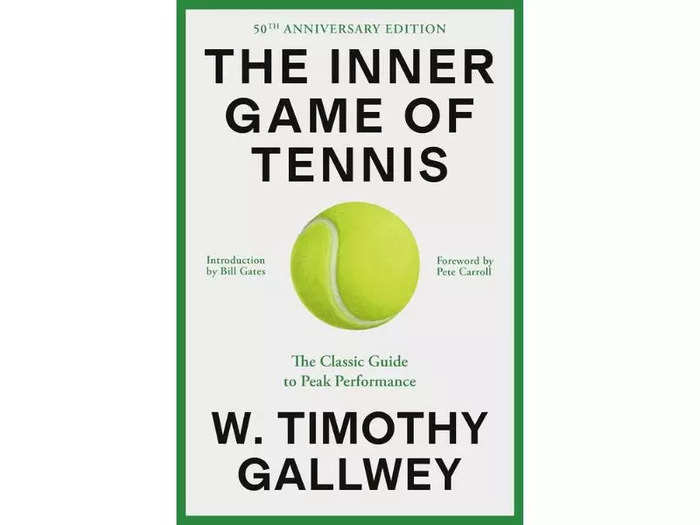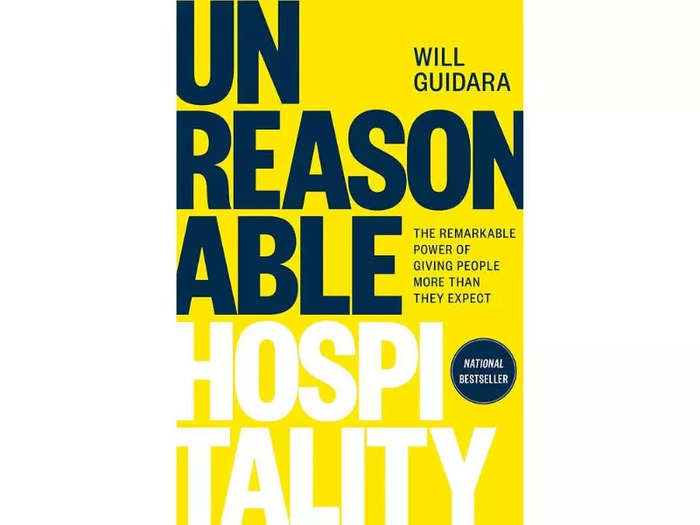A still from "Industry," an HBO drama about young bankers at the fictional bank Pierpont & Co in London.Amanda Searle/HBO
- Business Insider selected 25 young professionals 35 and under for its rising stars of Wall Street list.
- We asked these up-and-comers what TV show, book, or movie best represents the finance industry.
There's no shortage of colorful characters depicting Wall Street. There's the serial killer investment banker, the corporate raider who declares that "greed is good," and the crooked, if charismatic, stockbroker, to name a few.
Two of those are fictional movie characters, and one was based on real person, but they have all shaped the public's perception of what working on Wall Street could be like.
If you ask successful people at some of the biggest banks, asset managers, trading firms, or hedge funds whether they see their reality accurately perceived on the screen or in books, they'll tell you that working on Wall Street is a little less colorful than it's often painted to be.
"I don't know that there's a great movie or book depicting life on Wall Street," Mark Zhu, 34, a managing director at Blackstone, told Business Insider. "The day-to-day is a lot more boring than you think. It's a lot of calls and a lot of emails. There's not as much flamboyance or out-there behavior. It's almost not movie-worthy. Why would you pay money to watch somebody just sit in front of a computer doing Zooms?"
So maybe they think all that partying on HBO's show about twenty-something investment bankers "Industry" is a little overdone, but there are still some elements the entertainment industry gets right occasionally.
We asked up-and-comers on Wall Street about the shows, movies, or books that best represent their daily lives. While no one representation was perfect, they talked about some of the parallels they saw. Some even shared some non-finance references that give a window into their world.
Here are the shows, movies, or books that give a flavor of what it's like to work on Wall Street.
Shows: "Industry"
"Industry" follows junior bankers at a fictional elite institution in London. Amanda Searle/HBO
The hit TV show "Industry" — full of sex, drugs, and spreadsheets — just wrapped up its third season.
"My friends in the last few years have nonstop bothered me about 'Industry,' Justin Elliott, 29, a vice president of institutional rate sales at Bank of America, told BI.
"They see a crazy show about the industry and say, 'My God, I can't believe that happens in your world every day.' From what I've seen, there's definitely some thrills from getting a trade done that might mirror the show a bit, but it's a very exaggerated depiction of life on Wall Street."
"I don't know that any of them do a great job, but I am quite a fan of 'Industry,'" Erica Wilson, a vice president at private credit firm Blue Owl, told BI. "I am still behind on the third season, but I think that show is fun."
"Succession"
"Succession" siblings fight it out over four seasons for the future of their father's media conglomerate. David Russell/HBO
Though the blockbuster show "Succession" isn't specifically about the banking industry, Daniela Cardona, a 29-year-old investment banker at RBC Capital Markets, watched it in its entirety and found some similarities in high-stress moments.
"In the last season when they're trying to merge the two companies, there's one scene that always makes me giggle. I don't think this is fully accurate, but I do think it's funny — they're in a conference room and Kendall says 'Just make it up!' and they're all with their laptops sitting in the middle, and the consultants are looking at him like, what do you mean, make it up?" Cardona said.
"There have been instances where it sometimes feels that way — where you're in a time crunch and it's 3 o'clock in the morning."
"Scrubs"
"Scrubs" follows a group of medical students learning the ropes. ABC/Photofest
Ben Carper, a 34-year-old managing director at Jefferies, pointed to the medical comedy sitcom "Scrubs" as a better representation than anything that features board rooms and trading floors.
He said the show had a "similar high-pressure environment where there are some opportunities for amusement and humor, but generally a pretty vigorous focus on doing a job well done."
Movies: "Margin Call"
"Margin Call" takes viewers inside a nameless financial institution. Roadside Attractions
The 2011 drama "Margin Call" follows the 24 hours after an analyst at an investment bank discovers that it has taken on more debt than it can handle — illustrating the early stages of the 2008 financial crisis.
"I think it picks up the cadence of working at a big bank the best," Austin Anton, 32, a principal at Apollo Global Management, told BI.
"The Wolf of Wall Street"
Leonardo DiCaprio plays Jordan Belfort in the Martin Scorsese-directed film. Paramount Pictures
"The Wolf of Wall Street" follows the story of Jordan Belfort, who actually only worked at a Wall Street firm for a few months before the 1987 stock market crash. He goes on to run his own brokerage, which ultimately scams a number of people, but the movie highlights the debauchery, the opulence, and the excess that ensued during his run.
"This almost sounds weird, but I'm going to say 'The Wolf of Wall Street,'" Matt Gilbert, a managing director at Thoma Bravo said. "The absurdity of that movie, to some extent, I do think, kind of incorporates some aspect of our job."
While finance is the backbone of the economy and certainly has global implications, what bankers and investors do on a day-to-day basis isn't saving lives, the 35-year-old added.
"I think the fact that you could have a comedy wrapped around the finance world is important, and it always makes me take a step back and think through, sure, I want to win every deal. Our fiduciary duty at Thoma Bravo is to produce the best returns for LPs, but this job is supposed to be fun. I'm supposed to work with great people. We're supposed to laugh together. I think if people take this job too seriously, that's when burnout and other things happen."
"The Big Short"
"The Big Short" follows a number of Wall Street players as they begin to piece together what was happening to the American housing market. Paramount Pictures
"The Big Short," the movie based on financial journalist Michael Lewis's book, chronicles how Wall Street helped fuel the US housing crisis in 2008 and the investors who profited from it.
"It's not our day-to-day, but I think it is an OK representation of what happened at the time," said Chi Chen, 34, a portfolio manager at BlackRock. " Maybe it is not all factual, but it is a good one that is representative."
"The Internship"
Staring Owen Wilson and Vince Vaugh, "The Internship" actually shot some scenes at Google's headquarters. 20th Century Fox
Patrick Lenihan, a portfolio manager at JPMorgan Asset Management, said "The Internship," which features two old-school salesmen trying to restart their careers through an internship at Google, reminds him of the importance of having and supporting a diverse team.
"I feel like that team with Owen Wilson, Vince Vaughn, the rest of them, and how they come together at first, you see there's just a variety of different people that you're like, 'Oh, this is going to fail,'" he said. "But I think a large part of my success is going back to that teamwork, getting the right people in, and ensuring that diversity of opinions."
Books: "Market Wizards"
Amazon
BlackRock's Chen, who focuses on fixed income, said to really gain insight into the investing industry, it's best to read the "Market Wizards" book series, which features interviews with top traders.
"A lot of those investing stories for that book series are more from two, three decades ago, when market volatility was much higher. But we have seen a comeback of market volatility since 2020," she said. "So I have always enjoyed that whole series of books."
"Free Food for Millionaires"
Amazon
Elliott, the Bank of America VP, recommends Min Jin Lee's novel "Free Food for Millionaires."
"It's about a Korean woman navigating life who ends up on Wall Street in an admin capacity. But really, it's a story about belonging and identity — about trying to make it in a world and industry you didn't initially know much about," he said.
"To me, it's a lot more humanistic. It gives me a bit more of a personal perspective when I think about my journey on Wall Street. When I think about the people – and understanding people is so much of this job – I go back to 'Free Food for Millionaires.'"
"The Man Who Solved the Market"
Amazon
There's no fiction piece of media Bridgewater's Blake Cecil has found to reflect life in finance, saying shows and movies "feel quite distant" from his day-to-day.
A biography of the late hedge fund billionaire Jim Simons, "The Man Who Solved the Market: How Jim Simons Launched the Quant Revolution" reflected how the deputy chief investment officer and his colleagues approached challenges.
"It resonated with my experience of working with people who are using algorithms to solve problems that often hadn't been asked before."
"The Inner Game of Tennis"
Amazon
Harrison DiGia, a vice president at General Atlantic, had another book recommendation, "The Inner Game of Tennis" by W. Timothy Gallwey.
"This book is all about the mental game and trusting your intuition and yourself. You use practice and your preparation before a competition so that when the time is right, or you have a big opportunity, you're ready and your mental game is as strong as it can be," said DiGia, who is 31.
"When I think about investing, a lot of it is setting yourself up to get that big opportunity and making sure you're prepared and can have a clear mind when that pressure situation comes. I'm a huge tennis fan, so I think about this when I'm on the tennis court, but I think about it in a professional setting as well."
"Unreasonable Hospitality"
Amazon
In the book "Unreasonable Hospitality: The Remarkable Power of Giving People More Than They Expect" by Will Guidara, the co-owner and general manager of Eleven Madison Park, describes how he manages his business, his customer service style, and the things that he would do at Eleven Madison Park to go above and beyond.
Craig Kolwicz, an investment banker at Moelis, said the "unreasonable hospitality" described in the book (like having an employee run out to get a hot dog for a customer you overheard saying that they hadn't had one in New York yet) is not dissimilar to the type of service that could differentiate an investment banker.
"It depicts a restaurant that's an extremely expensive restaurant where there's an extremely discerning clientele base. They could go to all these other really fancy, really nice three Michelin-star restaurants in New York or in the world," the 35-year-old managing director said.
"How do you differentiate yourself? There's a lot of investment bankers out there and there's a lot of really smart clients and folks that we work with all the time — and how do we get them to stay with us? How do we get them to hire us on the next deal? It's some of the stuff that we do," he said. For example, he had recently flown to Los Angeles for an 11:30 a.m. pitch meeting and flown back.
"It's like hospitality, but it's kind of an unreasonable client customer service to do something like that," Kolwicz said.

